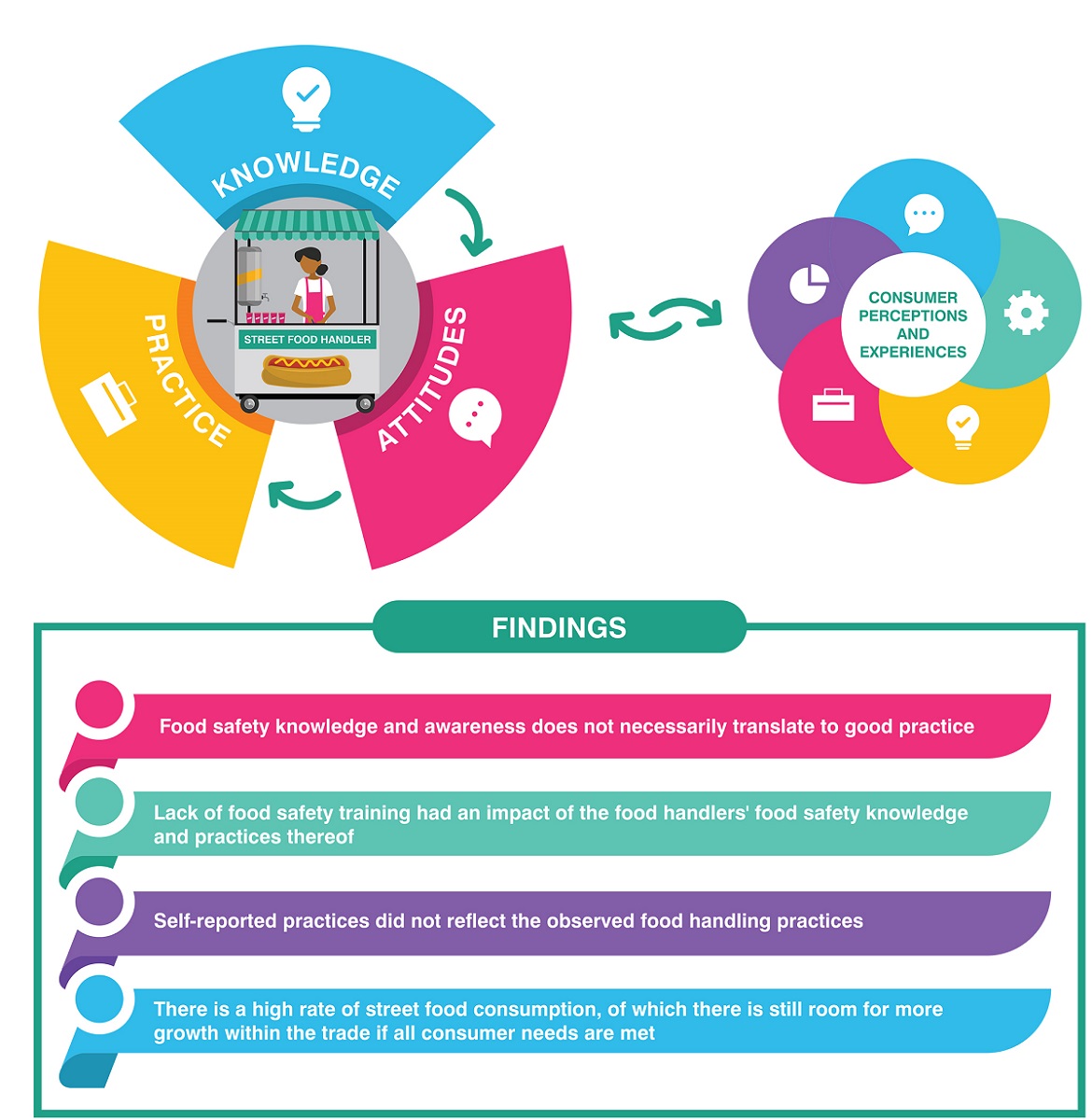Street vended foods are ready-to-eat food and beverages prepared and/ or sold in the streets. This trade provides for 85-99% of total employment in most African countries and 50% or more is constituted by women. The preparation of street vended foods is normally under unsatisfactory conditions and these may lead to the contamination of food. This descriptive survey was conducted in Maseru around the taxi ranks amongst 141 participants (48 food handlers and 93 consumers) using a semi structured questionnaire, open ended questionnaire and observation checklist. Majority of the food handlers were females (n=35, 60%) and males constituted only (n=23, 40%). On average the vendor population that participated in this study was considered to have poor knowledge of food safety since they scored 49%±11. With regard to the consumers, 63% were males and 37% were females, and only 6% reported that they never buy street vended foods mainly due to the food safety issues and hygiene. Based on the results of this study, it is thus recommended that educational interventions be implemented. The observation study showed that they also operated under unhygienic conditions and 95% of food handlers had the incorrect knowledge that washing utensils with detergent leaves them free of contamination. Regarding the consumer perceptions, they highlighted that the trade has the potential to grow and be profitable on condition that hygiene is emphasized and infrastructure improved so as to provide safe quality food.

